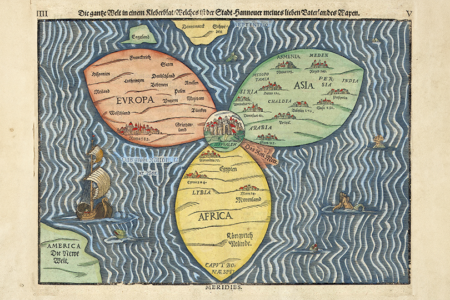Eleven Major Categories Of Messanic Prophecy Interpreted Part Two
Prophecy
Messiah’s Death
Isaiah 53:8 … for he was cut off out of the land of the living: for the transgression of my people was he stricken.
Fulfillment,
Luke 23:33 And when they were come to the place, which is called Calvary, there they crucified him . . .
Interpretation:
He was “cut off” or taken away before His time (cut down like a flower). Messiah was killed at an early age, when He was only 33 years old.
Daniel 9:26 And after threescore and two weeks shall Messiah be cut off, but not for himself . . .
Luke 23:33 And when.they were come to the place . . , called Calvary . . . they crucified him . , .
Luke 24:26 Ought not Christ to have suffered these things . . .
Interpretation:
Again this shows clearly that Messiah would be killed at a specific time for mankind. (See interpretation under “Messiah’s Time of Birth”.)
Isaiah 53:12 … he hath poured out his soul unto death . . .
John 19:30 . . . It is finished: and he bowed his head, and gave up the ghost.
Interpretation:
The Messiah poured out His life unto death at the time of His crucifixion.
Messiah’s Manner Of Death
In Psalm 22 we have a picture of the Messiah being crucified (Psalm 22 has always been considered messianic). The method for capital punishment in Israel was by stoning, but here David writes of Christ’s crucifixion 1,000 years before it takes place.
Psalm 22:7, 8 All they that see me laugh me to scorn: they shoot out the lip, they shake the head, saying. He trusted on the Lord that he would deliver him: let him deliver him, seeing he delighted in him.
Matthew 27:39-44 And they that passed by reviled him, wagging their heads . . .Likewise also the chief priests mocking him. with the scribes and elders, said . . . He trusted in God: let him deliver him now, if he will have him: for he said, I am the Son of God.
Interpretation:
“All they that see me laugh me to scorn” – the rulers and people derided him at the Cross.
“They shoot out the lip, they shake the head” – all that passed by shook their heads and railed him in disgust.
“He trusted on the Lord” – He trusted (or rolled His situation into the Father’s hands) while He was dying on the Cross. The elders of Israel who witnessed the crucifixion said these exact words, scorning the Lord. They are recorded in Matthew 27:43.
Psalm 22:14 I am poured out like water, I and all my bones are out of joint: my heart is like wax; it is melted in the midst Of my bowels.
Interpretation:
“I am poured out like water” – weakness and exhaustion which accompanies crucifixion.
‘”And all my bones are out of joint” – the strain of His body suspended on the Cross would dislocate the joints of the arms.
“My heart is like wax …” – the failure of the heart because of lack of blood to stimulate it was the proximate cause of death in crucifixion. Messiah suffered great pressures on Him because of His suffering for sin. When the soldiers pierced the Messiah’s side, blood and water poured out (John 1 9:34) probably because of the great emotional strain He had undergone for our sin.
Psalm 22:15 My strength is dried up like a potsherd; and my tongue cleaveth to my jaws; and thou hast brought me into the dust of death.
John 1 9:28 . . . that the scripture might be fulfilled, saith, I thirst.
Interpretation:
“My strength is dried up …” – His body became very weak under the acute pain suffered by crucifixion.
“And my tongue cleaveth to my jaws” – because of His intense suffering, little saliva was produced in the mouth, causing the tongue to swell which resulted in an agonizing thirst. This is why He cried, “I thirst” in John 19:28.
“And thou hast brought me into the dust of death” – it means that He was brought to the door of death (as one who is dying falls to the ground).
Psalm 22:16 For dogs have compassed me: the assembly of the wicked have inclosed me: they pierced my hands and my feet.
John 19:37 . . . They shall look on him whom they pierced.
Interpretation:
“The assembly of the wicked have inclosed me” – the soldiers who crucified the Messiah encircled Him.
“They pierced my hands and my feet” – this clearly speaks of the crucifixion
Psalm 22:17 I may tell all my bones:they look and stare upon me
Matthew 27:36 And sitting down they watched him there.
Interpretation:
“I may tell (count) all my bones” – His position on the Cross would cause His bones to protrude in such a way that they could be counted.
“They look and stare upon me” – unholy eyes gazed insultingly upon the Saviour’s nakedness, as they gloated with cruel eyes upon His miseries.
Psalm 22:18 They part my garments among them, and cast lots upon my vesture.
Matthew 27:35 And they crucified him, and parted his garments, casting lots: that it might be fulfilled which was spoken by the prophet. They parted my garments among them, and upon my
vesture did they cast lots.
Interpretation:
This literally happened during the crucifixion, as recorded by Matthew.
The Purpose Of Messiah’s Death
Daniel 9:24 Seventy weeks are determined upon thy people and upon thy holy city, to finish the transgression. and to make an end of sins. and to make reconciliation for iniquity, and to bring in
everlasting righteousness, and to seal up the vision and prophecy, and to anoint the most Holy.
Interpretation;
The purpose of Messiah’s death was to accomplish six things:
To finish transgression – although the Messiah provided redemption for sin at His first coming, Israel’s transgression as a nation is not finished” (brought to an end) until His second coming (although individual Jewish people can accept the provided redemption now).
“To make an end of sin” – may be taken to mean “take away sins, bring sin to final judgment, or to seal up sin.” This will become a reality at the end of Israel’s history when their previous transgressions are forgiven.
“To make reconciliation for iniquity” – this is a picture of the reconciling work of Messiah at His crucifixion. It can be applied to the individual Jew today, but the application for Israel, as a nation, takes place at His second coming. Zechariah 12:10 will become a reality for the Jewish nation.
“To bring in everlasting righteousness” – this was accomplished by Messiah at His first coming. He provided the way for God to justify us and impute righteousness to us. But the “bringing in of everlasting righteousness” becomes a completed reality at Messiah’s second coming during the time of the messianic Kingdom Age (see Isaiah 11:2-5),
“To seal up the vision and prophecy” – Messiah seals up “visions and prophecy” at the termination of direct revelation given in the writing of God’s Word, as well as vindicates the prophecy here and all prophecies in the Word by their fulfillment.
” To anoint the most Holy” – this will most likely be fulfilled in theMillennial Age when Messiah anoints the Holy of Holies in the millennial Temple (Ezekiel 41-46).
Application:
It is clear from this verse that the purpose of Messiah’s coming and death was to provide redemption from sin through His atoning death. We have already examined in Isaiah 52:13-53:12 that the purpose of Messiah’s death was to provide for redemption through
His atoning work on the Cross.
Messiah’s Resurrection
Psalm 16:10 For thou wilt not leave my soul in sheol; neither wilt thou suffer thine Holy One to see corruption.
Acts 2:31 He seeing this before spake of the resurrection of Christ, that his soul was not left in hades. neither his flesh did see corruption.
Interpretation:
This prophecy definitely refers to the resurrection of Messiah and cannot refer to David. It speaks of not allowing the “Holy One” (Messiah) to see “corruption (bodily decay after death) in sheol (the grave). David is still in the grave and his body has decayed. Neither was David ever called a “Holy One” {pious one). Therefore, we clearly see from this passage that the Messiah was resurrected after His death.
Isaiah 53:10. .. he shall.prolong his days
Interpretation:
This refers to Messiah’s resurrection. If Messiah has died as is mentioned in this chapter, verses 8 and 9, then the words, “he shall prolong his days” must mean He is resurrected.
Messiah’s Second Coming
Zechariah 12:10 And I will pour upon the house of David, and upon the inhabitants of Jerusalem, the spirit of grace and of supplications: and they shall look upon me whom they have
pierced, and they shall mourn for him. As one mourneth for his only son. and shall be in bitterness for him, as one that is in bitterness for his firstborn.
Matthew 24:30, 31 And then shall appear the sign of the Son of man in heaven; and then shall all the tribes of the earth mourn, and they shall see the Son of man coming in the clouds of
heaven with power and great glory. And he shall send his angels with a great sound of a trumpet, and they shall gather together his elect from the four winds, from one end of heaven to the other.
Interpretation:
“I will pour” – these words imply an abundance of the Spirit upon the Jewish people will be poured out when Messiah returns the second time (Joel 2:28). it will be like pouring rivers of water upon a dry ground.
“Upon the house of David, and upon the inhabitants of Jerusalem – the leaders and people alike (all social orders) will receive the outpouring of the Spirit. The naming of Jerusalem is mentioned because it represents the capital of Israel and the center of Judaism.
“The spirit of grace and of supplications” – this is the Holy Spirit who bestows the gift of grace and effects grace in the hearts of the Jewish people. Supplication is the soul crying out to God in prayer. The Holy Spirit bestows grace in the heart which produces supplicating prayer. The effect of the outpoured Spirit is that they shall look on the Messiah in belief.
“They shall look” (Hebrew “V’hibitu”) – to look upon (or unto) implies trust and reverence (a longing to see or a hope in). Look also carries with it the idea “to contemplate”. The same Hebrew word for “look” (v’hibitu) is used in Numbers 21:9 when Moses told the Israelites to look on the brazen serpent for life. It is the same word used in Numbers 12:8 for the beatific view of God when Moses “beheld” the “form or similitude of God”. In the day of Messiah’s second coming the Jewish people shall “look upon” Him who once suffered and died for them, but who at this time will manifest His glory unto them.
“Upon me” – they will contemplate the character and majesty of Messiah as their Saviour and Deliverer.
“Whom they have pierced” (Hebrew “daqar” for pierced) – pierced means to pierce or thrust through with a spear or lance. This speaks of Messiah’s crucifixion. Although it was the Roman soldier who actually did the piercing (with thorns, nails and a spear), the responsibility (in part) of delivering Him up to the Gentiles for piercing will strike home to the heart and conscience of the Jewish people at the second coming of Messiah. Therefore, indirectly. They were responsible for the piercing.
“They shall mourn for him” – this is not an ordinary mourning, but a “deep intense mourning”. Notice, there is a change of persons here. Jehovah speaks of the Messiah as a distinct Person from Himself. This definitely speaks of the Jewish people mourning for the crucified Messiah.
“As one mourneth for his only son, and shall be in bitterness for him, as one that is in bitterness for his firstborn” – the depth of their mourning is expressed with a double emphasis; the grief felt at the loss of an “only son”, and of the “firstborn”:
– Among the Jewish people preservation of the family was of vast importance, and its extinction was regarded as a punishment and a curse. Therefore, the death of an “only son” would be a very difficult situation for the family to accept (cf. Isaiah 47:9; Jeremiah 6:26; Amos 8:10).
– Special privileges belonged to the “firstborn”, and the loss would bring deep sorrow and bitterness to the heart of the family.
– The terms “only son” and “firstbom” are not only used to bring out the depth of this truth to the Jewish people, but it also speaks of the position of Messiah. Messiah was the “only begotten Son of the Father,” and He was the “Firstborn of every creature.” Just think of the depth of sorrow that God the Father faced when His Son was pierced.
In the day of Messiah’s second coming Israel (as a nation) is going to look on Him with deep sorrow and contrition of heart and confess Him as their Saviour and Lord, Then the truth of Isaiah 53:3-6 will become a reality for the Nation of Israel. (Ideas taken from Pulpit Commentary on Zechariah, p. 136.)
Other Prophecies of Messiah’s Return To Earth
Isaiah 40:10
Matthew 24:30, 31
Isaiah 63:1-4
Acts 1:1
Malachi 3:1-3
Philippians 3:20, 21
Matthew 25:31-46







